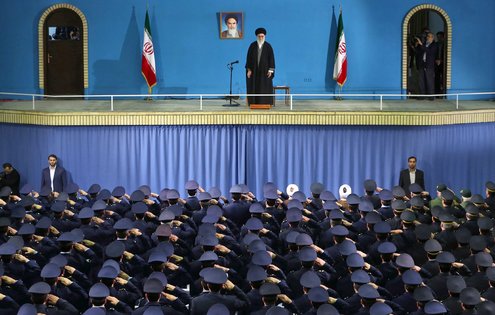Iran won’t negotiate with OPEC or seek the group’s permission before boosting oil exports by a planned 500,000 barrels a day once sanctions are removed from the nation’s economy.
The Persian Gulf state is unconcerned about the impact this additional supply may have on crude prices, which already reflect the expected increase in Iranian shipments, Oil Minister Bijan Namdar Zanganeh said Tuesday at a news conference in Tehran. The fifth-largest producer in the Organization of Petroleum Exporting Countries will inform the group after it increases exports, he said.
“The drop in prices won’t be a concern for us,” Zanganeh said. “It should be a concern for those who have replaced Iran.” Iran doesn’t expect difficulties selling the additional barrels, and “the market has taken into account our return,” he said.
Iran has struggled to sell its oil due to international sanctions over its nuclear program and is eager to reclaim its share of global sales. Sanctions are widely expected to be lifted next year as a result of an accord the country reached with six world powers in July. Iran produced 2.7 million barrels a day of oil in October, according to data compiled by Bloomberg, down from more than 4 million before the U.S. and other nations imposed curbs on its energy and financial industries.
Price Slide
OPEC’s 12 members are to meet on Dec. 4 in Vienna to assess the oil market and the group’s output policy. OPEC decided at its last meeting on June 5 to keep its production target of 30 million barrels a day unchanged to defend market share amid rising output from higher-cost producers such as U.S. shale companies. Brent crude, a global pricing benchmark, has tumbled 30 percent since the group’s decision in June.
“Our oil will probably double within a short while of sanctions being lifted,” Zanganeh said, without specifying the amount of such an increase in exports. “So if the price does go down, it won’t worry us because it means, for instance, if the price drops but then export volumes increase, the income will stay the same as before.”
Iran’s oil exports fell to an average 1.4 million barrels a day last year from 2.6 million in 2011, U.S. Energy Information Administration data show. The country seeks to raise production by 500,000 barrels a day as soon as sanctions are lifted and by 1 million barrels a day by the end of the current Iranian year on March 20 or “soon after,” Zanganeh said.
All phases of the South Pars natural gas field except for one, the 14th phase, will be open by the time President Hassan Rouhani’s presidential term ends in June 2017, Zanganeh said at the conference. Iran has the world’s biggest gas reserves, according to BP Plc data.








